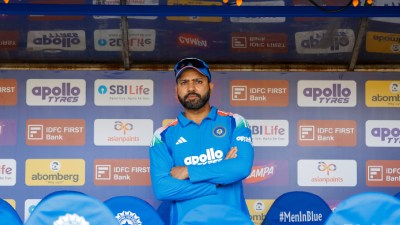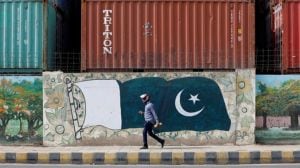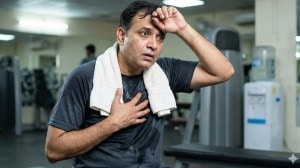Exiled by elections
Shantini is not allowed to get married till India finishes voting. Her prospective grooms from France and England have been told to wait til...

Shantini is not allowed to get married till India finishes voting. Her prospective grooms from France and England have been told to wait till May 10, when the 25-year-old Sri Lankan refugee is finally permitted to leave Okkur, a village six kilometres outside the town of Sivagangai.
The same goes for the rest of the 875 Sri Lankan Tamils who have taken refuge in a little colony in Okkur, which is about 450 kilometres away from Chennai. Every time, a political leader passes through town they have to gather here for a roll call. And during election time, the 8216;8216;visits8217;8217; from the revenue inspector go on for about a month, between April 20 and May 15 this time round.
The police come here and check our homes for security reasons, says Shantini. 8216;8216;We are not allowed to budge until the elections are over.8217;8217; Shantini8217;s mother Savitri, who runs a shop in the village, says the day the orders about the extended roll calls came from the police, her son Kandeepan rushed to Chennai, where her brother lives, to bring Shantini back. 8216;8216;She did not want to come,8217;8217; says Savitri. 8216;8216;She says it is too hot over here and there are marriage alliances to be fixed. But what can we do? If any member of the family is found missing, our rations are cut.8217;8217;
Kandeepan explains that every family member here is entitled to a certain amount of money every 15 days. That works out to about Rs 200 a month for the family head, Rs 150 for his wife, all children below 12 get Rs 64 a month, and those above 12 get Rs 150. 8216;8216;If, during the raids, a family member is not present, then it is assumed that they are dead or have run away and they are removed from the list. That means reduced rations,8217;8217; says Kandeepan.
Once the fund is cut, it takes the families more than a year to get the ration back. 8216;8216;If you are blotted out from the rolls, you can8217;t get a passport. It means we will never be able to leave the country,8217;8217; says Savitri. 8216;8216;All because we were marked absent.8217;8217;
Getting out of the country is their only hope of a good life. Though many of the refugees in this colony are educated, good office jobs are hard to come by. Kandeepan, for instance, has a Bachelor8217;s degree in Commerce and plans to get a Master8217;s degree, but knows that the only way he is going to get a good job is to leave India for England, where his uncle lives.
8216;8216;Who is willing to give a Sri Lankan refugee a job? If I stay in India, I will probably have to become a painter. If I go back to Sri Lanka, I might get a job, but I don8217;t want to go. Because if I do and there is trouble there again between the LTTE and the Government, the LTTE will try and recruit us. And even if there is no trouble, they will still brand me LTTE,8217;8217; he says. 8216;8216;I don8217;t want to join the rebels. It is the reason we ran away from Sri Lanka in the first place.8217;8217;
The lot of them, about 300 families, moved in here more than a decade ago. Kandeepan was about five then, Shantini was four. This was just after former Prime Minister Rajiv Gandhi was assassinated by an LTTE suicide bomber. 8216;8216;That is why they make us come here for roll calls. They think that we are suicide bombers and that we have guns,8217;8217; says Shantini.
Government officials, who refuse to be named, say the roll calls are conducted by the tehsildar in charge of rehabilitation and the revenue inspector to make sure all the refugees are accounted for and no outsiders are present. 8216;8216;It8217;s for security reasons,8217;8217; they say.
Whatever the reasons, V Sathianadhan says he just wants to get back to work. The 38-year-old painter, who has been living here for more than 10 years, says his family depends on his daily wages for their livelihood. 8216;8216;I8217;ve been sitting here for the last 15 days. Every time they call, wherever I am, whatever I am doing, I have to drop it and run back here,8217;8217; says Sathianadhan.
In terms of wages it means a huge dip. 8216;8216;When I work in Chennai I make about Rs 80 a day, and get work five days a week. Here, I barely manage two days of work a week, and about half the money.8217;8217;
- 01
- 02
- 03
- 04
- 05






























